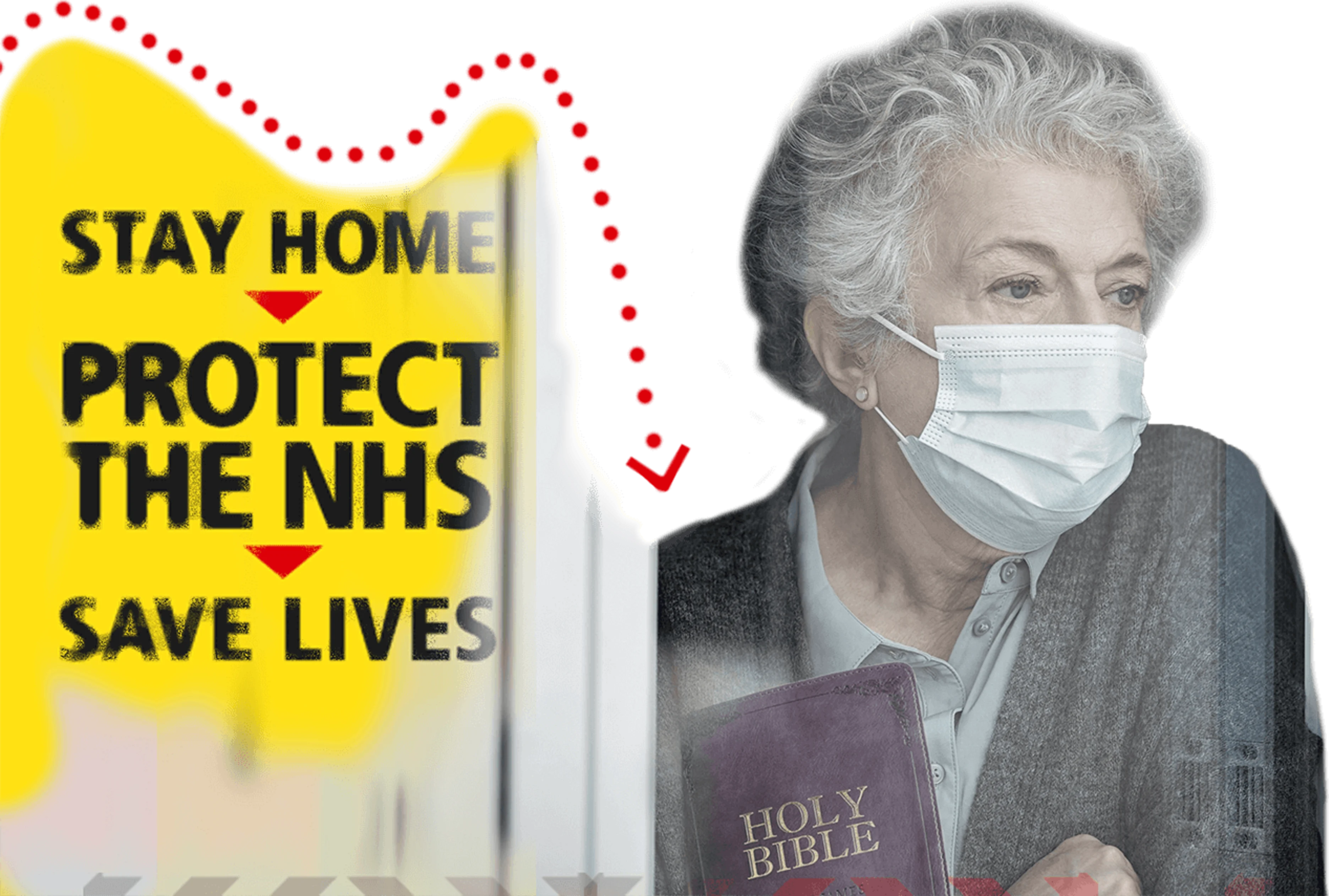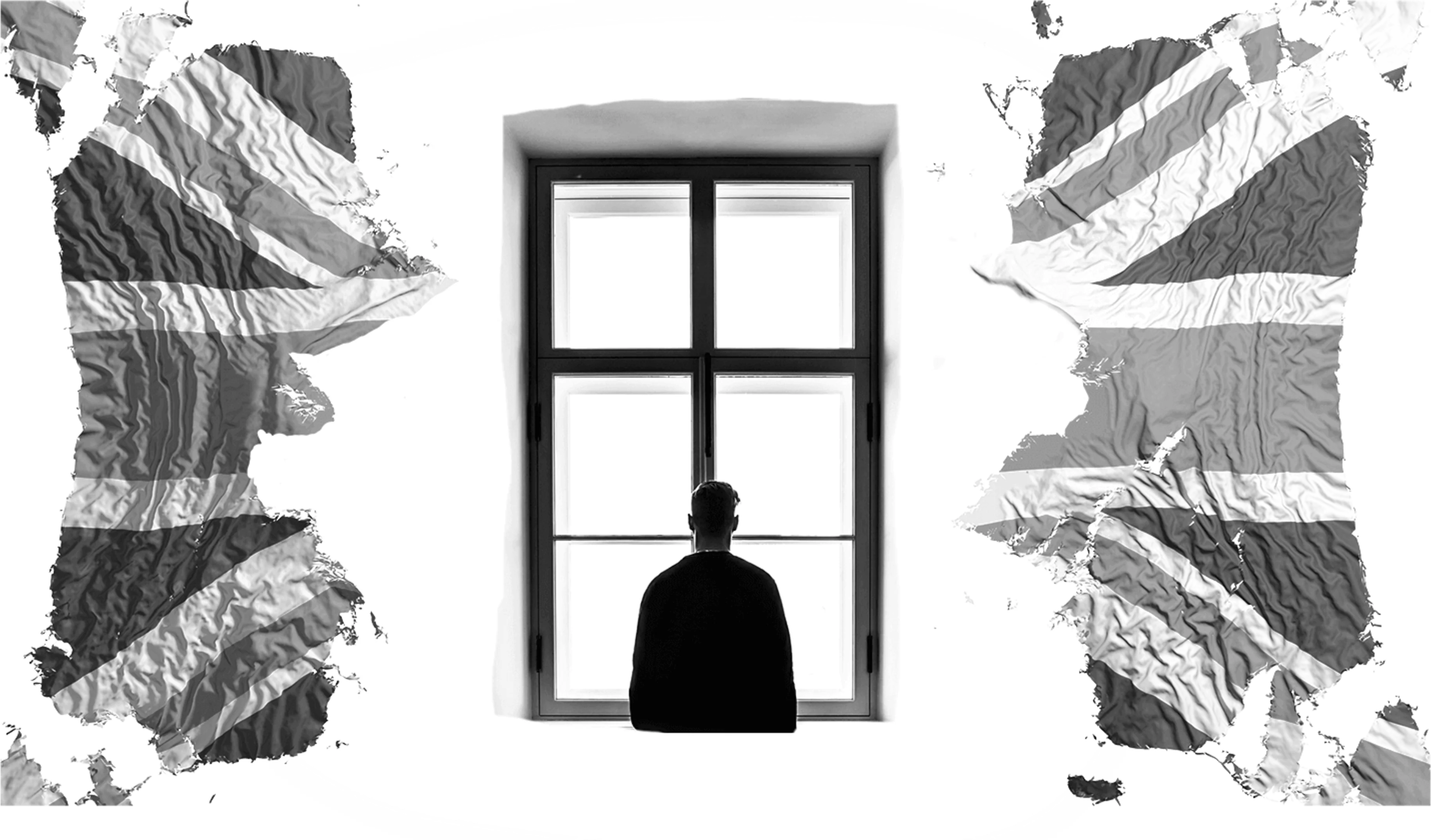Our communities are vanishing. Their life support, goodwill, and security are lifting like a fog in front of our eyes too. What's left is the cold and barren shoulder of contemporary British society; all hesitant hands that only reach out if shamed. And we should be ashamed.
We have allowed successive governments to chop up and cannibalise our communities. You can blame the post-covid blues if you want to, but the instant jump to toilet paper hoarding, pasta packing, and self-preservation shows that covid only highlighted an underlying mindset. And ever since, I have felt a steep decline in our sense of community, as if the country en masse washed its hands of collective responsibility after shouldering it forcibly by the powers at be. It's not just a personal feeling. The statistics show that this sentiment is shared countrywide. In 2016, 69% of Britons felt they belonged to their neighbourhood. Just two years later, this fell to 62%. The feeling rose to 65% of Britons during covid, of course, but we can only assume this will slump back down in the coming year.
So why, then, is community so lacking in this country?
It is easy to blame the rise of online communities, which have weakened traditional connections by facilitating an easier form of interaction with less accountability than conventional relationships. But they have also strengthened traditional communities. Where there are language barriers, social fragmentation, or a different ideology, these digital spaces provide a sense of connection and a place to belong. During covid, they were an essential lifeline too. When we couldn't meet each other, our online communities filled the gap - and did so splendidly - as evidenced by our increased sense of belonging. So no, the rise of the internet is not to blame. In Britain, the answer, both simple and complicated simultaneously, is epitomised by this; community isn't a part of our culture anymore.
It only takes a little reflection to understand. In my short lifetime, this country has seen the sustained loss of religion, the closure of community hospitals, the abandonment of community policing, the departure of young people from towns and villages for the promise of "uni life", and the reluctant rise in renting. In addition, policies such as austerity, cuts to public services, privatisation of essential services, and a stagnant income for the working and middle classes have all contributed to the erosion of meaningful community relationships to such an extent that we have forgotten what a meaningful community looks like. In essence, we have been conditioned to be individualistic; and those perched on top are responsible.
Never have there been more ruinous role models for community than those currently parading in and out of 10 Downing Street. And never have there been more useless leaders than those running our institutions, such as The Church of England.
Ironically, both fall under the jurisdiction of the monarch, who, in the form of the late queen, inspired tremendous collectivism during the pandemic. However, as individual entities, HM Government and the CofE do nothing but damage our sense of belonging.
No, not because of their values, but because of their behaviour.
Policies of the Conservative party aside, which, as we already know, seeks to empower the individual to the detriment of the collective, it is the government's untrustworthiness which is undeniably toxic.
How can the people of a country trust and rely on each other if they can't trust and rely on the people who govern them? How can people form effective communities if, at the top, all you see is greed and loathing?
Lest we forget that Boris Johnson broke his own laws during covid and repeatedly lied about it to the nation. Lest we forget that Michelle Mone, a Tory peer, made millions from covid contracts that she had no right to win and no right to exploit. And lest we forget that MPs are raking in thousands in backhanders from dodgy companies in what surely is the biggest scandal since Brexit.
Trust in government is essential for a functioning society, and the Conservative party has systematically undermined that trust. This, more than their values, is why people may not necessarily trust their local leaders and, by extension, their communities.
And if the Conservative party was all about lies, then the Church of England was all about futility.
As a major institution in our culture, the Church of England has long served as a significant hub of communion. In times gone by, when this country was defined by its Christian values, people knew they could rely on each other because everyone shared the same fundamental morality.
But in recent times, the Church has adopted a more isolated role in our culture, becoming more a place to pay "lip service" rather than to come together.
Where was the Church of England when its communities needed support during the pandemic? Where were the parishioners when news headlines highlighted the lack of care packages for the elderly or food parcels for the poor?
As communities suffered, the Church of England should have been leading the charge, protecting the vulnerable, and nourishing our sense of belonging; are we not a Christian society, if not religiously then morally?
Instead, it has been complicit in the increasing fragmentation of our society.
The Church’s lack of action on social issues, lack of attention to rural communities, lack of missional vision, and lack of leadership in the public discourse has left entire swaths of England feeling abandoned.
The Church of England is now nothing more than a monument to a bygone era of Britishness; a relic of an old and fading identity. The institution has become too outdated to serve its original purpose and is no longer the unifying force it once was. In turn, we have traded our morality for liberalism, which, whilst noble in giving people more freedom to express themselves, has left us all a little lost.
When we compare western liberalism to more religious countries, such as Italy and Greece, we see communities that continue to thrive. In the Middle East and Asia, communities are bolstered by religious and traditional values which are woven into the fabric of their culture. As a result, there is a sense of collective responsibility and purpose and a shared understanding of values and identity.
It is notable that these countries also have an older population to pass down traditions. So, naturally, there is a greater level of stability and continuity for these communities.
In the UK, however, we have lost this sense of collective responsibility and purpose. We have rejected the collective values of the past and instead embraced the individualistic and often destructive values of modernity.
To pile on, increased immigration and a lack of support for integrating those from other cultures and backgrounds have alienated many people from their local communities. Consequently, people often find themselves living side by side without knowing each other, which makes it difficult to build meaningful relationships.
It is these values we should celebrate and welcome.
To those who bemoan that immigration has caused the rift in our communities, I say look at the strength of the communities of those who come here and ask yourself again if they are the problem. It is, in fact, our immigrants who have been essential to bolstering and strengthening communities across the UK. They have enriched cultural life and made many positive contributions to the economy. But, unfortunately, the woeful integration of immigrant communities has been a symptom of the cold-shoulder attitude of British people, a wilful ignorance, a comfortable callousness.
So that's it. The lack of community in the UK is primarily a result of government policies. Still, these policies have unwittingly been adopted by the British people, and their coldness of them comes through. Instead of going down the route of British exceptionalism, it's time we looked back to our roots and found our communities again.
Written by
Sean RyanPhD in Chemical Engineering. Interests in politics, society and economics. Born in Manchester, living in London. Loves to experience different cultures and indulge in different viewpoints.
Read next
Lonely Britain: the death of the church has killed our community

Connor McIntyre
Lockdown: When "Love Thy Neighbour" meant dying alone

Laura Calnan
I'm fed up with 'Forever'. Where's our Übermensch?

Sion Marsh
Weekly emails
Get more from Sean
The Fledger was born out of a deep-seated belief in the power of young voices. Get relevant views on topics you care about direct to your inbox each week.
Write at The Fledger
Disagree with Sean?
Have an article in mind? The Fledger is open to voices from all backgrounds. Get in touch and give your words flight.
Write the Contrast

